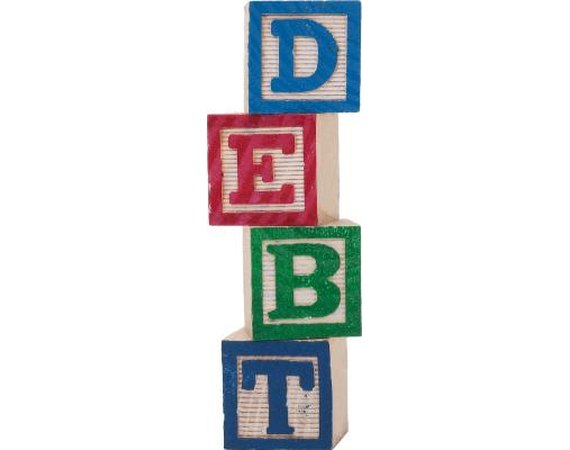
The state of New York has debt laws in place that govern how creditors and collection agencies are allowed to collect debt from consumers. If a debt remains unpaid, the creditor or agency has a right to file a lawsuit. If she wins the lawsuit, you are legally obligated to pay the debt. Failure to do so can result in garnishment of your wages. Even with garnishments, there are state and federal laws on the books to protect you.
Statute of Limitations
The statute of limitations on debt governs the amount of time a creditor can sue you over unpaid debt. In New York, the limitation is six years. The six-year rule applies to all debt, including written and oral contracts. This six-year debt clock does not start running until the date of your last payment. If you make another payment toward the debt, you reset the debt clock, even if the six-year period is expired. When the debt clock is reset, the creditor regains his right to sue you.
Garnishment
If a creditor is awarded a judgment (court order) for you to pay the debt, he has the power to garnish your wages. He may also "freeze" the funds in your bank account to obtain payment. Under New York law, if your net income is under $217.50 per week, your wages cannot be garnished. If your net income is between $217.50 and $290 per week, the garnishment is limited to 10 percent. If your weekly net income is $290 or more, the garnishment is limited to 25 percent.
New York Garnishment Exemptions
Under New York's "Exempt Income Protection Act," creditors cannot touch the first $1,716 of your bank account balance. If checks from government resources are deposited into your bank account, within 45 days preceding a bank account freeze, the balance exemption increases to $2,500. If a freeze is placed on your exempt bank account balance, submit a petition for exemption to the small claims court that issued the judgment.
Federal Garnishment Exemptions
Under federal law, checks received from certain government resources are exempt from garnishment. An example of exempt checks include unemployment, public assistance, social security, disability, worker's compensation, child support and alimony. If exempt wages are garnished, it is your responsibility to alert the courts. To do this, submit a petition for exemption to the small claims court that issued the judgment.
New York's Consumer Protection Law
Under New York law, all collection agencies must be licensed by the New York Department of Consumer Affairs. Collection agencies cannot harass you. This includes making threats or false statements, using harsh language and discussing the debt with others, including relatives and employers. The agency cannot call you before 8 a.m. or after 9 p.m. If you request a collection agency to stop contacting you, the agency must cease. If a debt collector violates the consumer protection law, contact the New York Department of Consumer Affairs or FTC (Federal Trade Commission) to file a complaint.






0 comments:
Post a Comment